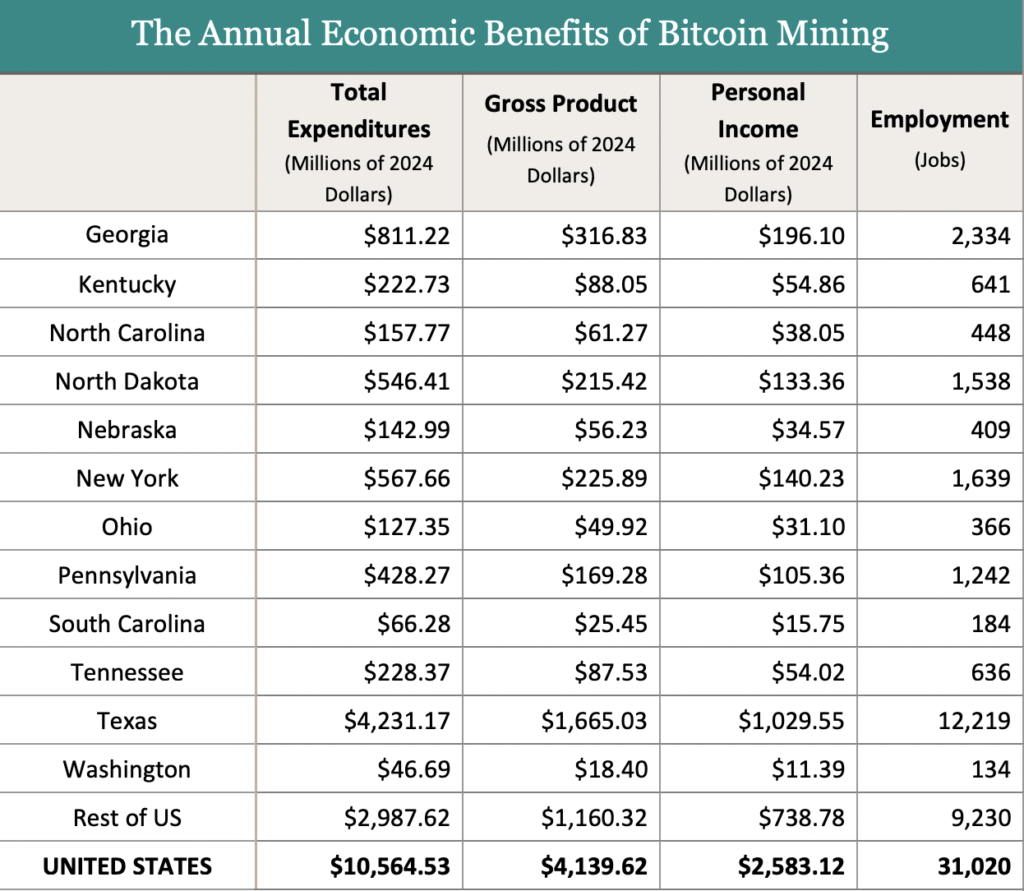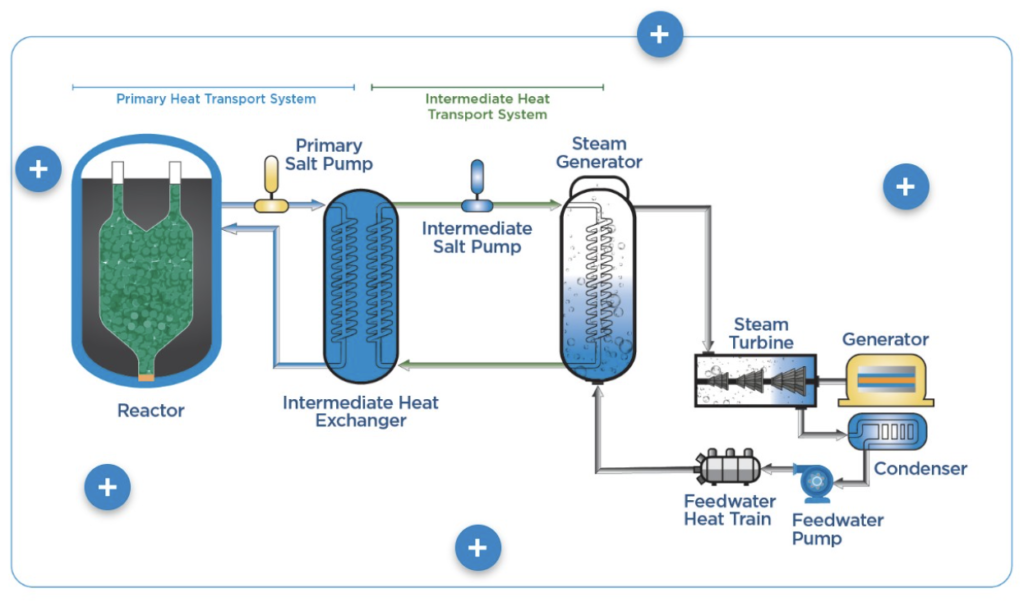A recent report highlights the growing economic impact of Bitcoin mining in the United States, revealing that the industry has generated over 31,000 jobs nationwide. Conducted by the Perryman Group and published by blockchain advocacy groups
Texas Blockchain Council and The Digital Chamber, the study underscores the sector’s role in job creation and local economic development. The report indicates that Bitcoin mining companies contribute significantly as employers and taxpayers in their respective communities.
Texas emerged as the leading state for mining-related employment, with over 12,200 jobs attributed directly to mining operations and associated industries. Overall, 12 states account for the majority of Bitcoin mining activity in the country.
Bitcoin’s Growing Economic Impact
Beyond employment, the industry reportedly adds more than $4.1 billion to the nation’s gross domestic product annually. Additionally, mining operations have been instrumental in supporting local energy infrastructure by serving as a load-balancing resource for electrical grids, a key factor as the U.S. focuses on energy resilience.

The importance of mining infrastructure has gained renewed attention following previous remarks by President Donald Trump about strengthening the nation’s position in the sector. During the 2024 presidential campaign, then-candidate Trump pledged to make the U.S. the “crypto capital of the planet” and emphasized the strategic necessity of dominating both Bitcoin mining and artificial intelligence (AI) sectors.
“We will have power plants built at the sites. We will be releasing people from certain ridiculous requirements, and we will be using fossil fuels to make electricity because we are going to have to. We will also be using nuclear.”
President Trump has since reiterated that achieving this goal would require the U.S. to at least double its current energy production. This high energy demand has prompted mining firms and technology companies to explore alternative power sources, including nuclear energy.

In line with this shift, Google signed an agreement in October 2024 with Kairos Power, a nuclear engineering firm, to develop a small-scale nuclear reactor aimed at supporting its AI operations by 2030. Small-scale nuclear reactors, a developing technology, offer a modular approach that allows facilities to host on-site nuclear power generation, potentially revolutionizing energy consumption for high-performance computing.
With the rapid expansion of Bitcoin mining and AI infrastructure, energy policy and resource management are expected to remain focal points for the administration and industry stakeholders moving forward.




















